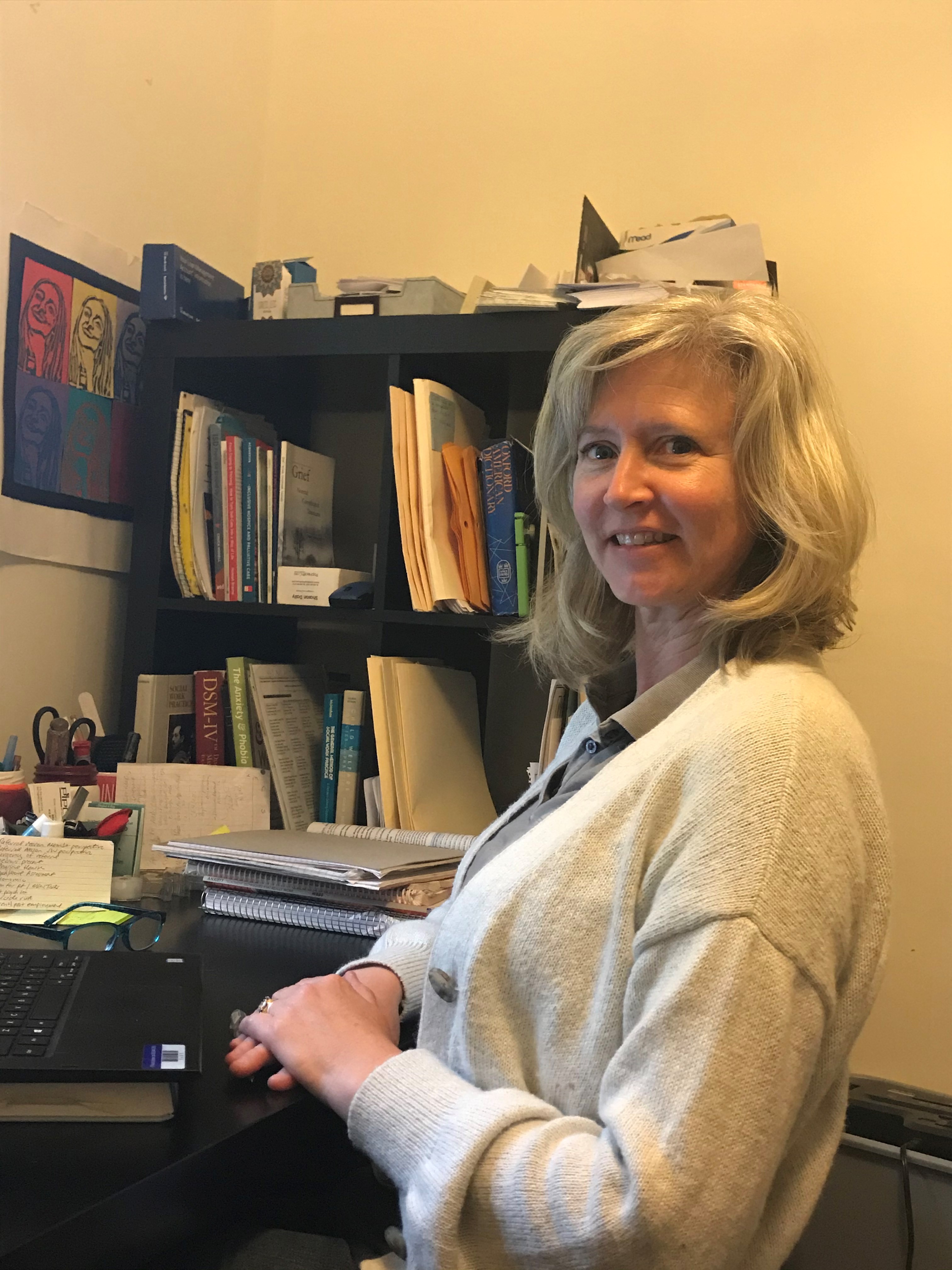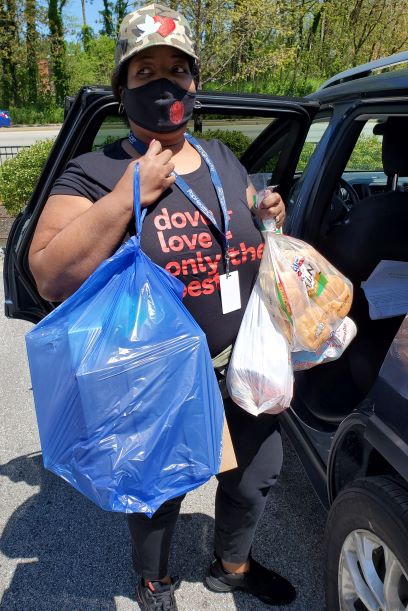Sharon Daily has spent nearly three decades as a social worker caring for older adults and those with disabilities. But, the past few months have been unlike any other time. During COVID-19, her work has shifted from in-home visits to telephone check-in calls. And, the types of conversations she’s having with clients are different, too.
Prior to COVID-19, Daily helped health plan members navigate all aspects of their life. Now, she’s focused on making sure people are safe and their basic needs are met.
“Every phone call, every check-in is dealing with the more practical issues within life. We ask if they have enough food, who is grocery shopping for them, how are they getting their prescriptions,” she said.

Daily is a clinical social worker for PopHealthCare, a GuideWell company that provides face-to-face in-home care for high-risk health plan members with complex health conditions. Each member of the CareSight® program is assigned a care team that includes a dedicated nurse practitioner and a community health worker or social worker based on need.
Under the leadership of a medical director, this team brings personalized care into member homes to help them manage ongoing health conditions and avoid hospital readmissions or unnecessary emergency room visits. During weekly rounding calls, the care team members collaborate to coordinate care plans, review goals and ensure every member of the team is on the same page for the delivery of care to the member.
When stay-at-home orders were put in place, PopHealthCare, which serves members in Arizona, Florida, Illinois, Maryland, Michigan, New Jersey, New York and Texas, transitioned from face-to-face visits to telephone outreach.
In April, Daily received a phone call from Jeralynn Williams, who is a community health worker at PopHealthCare. Williams told her about a wellness check she made to one of their mutual patients in Baltimore, where both of them live.
Williams said during the call with this diabetic patient, she discovered he only had enough insulin to get through the day. She also learned he was running out of food. To make matters worse, this patient didn’t have transportation to get to the grocery store or the pharmacy and was struggling financially.
Williams could have tried to find him transportation but because he was high-risk, she felt strongly that he shouldn’t be out in public where he could potentially be exposed to COVID-19. Her first reaction was to call Daily. She knew together they could come up with a safe solution.
“When I’m working, I always pull Sharon in. Our team is great, everybody gives input and brings different resources and suggestions," Williams said. “And if there is something we can help with, we go and do it.”
As Williams predicted, Daily immediately agreed to help. Daily volunteered to go to the pharmacy that day to pick up his lifesaving medication and deliver it to his front door. Daily says she placed the insulin on a chair on his porch and sat in her car at the end of the driveway as he came out to pick up his prescription.
With her window down and the patient standing on his porch, the two had a short conversation and exchanged a wave. The man told Daily, “This is so helpful, and I don’t know what I would have done without you.”
Daily said she felt relieved she was able to support someone during a time when they needed it most.
“Not being able to get that done for him could have brought about a very negative outcome,” she said. “Without his insulin, his blood sugar would have skyrocketed, which could have caused a hospital visit or something worse.”
And, this wouldn’t be the last visit from his PopHealthCare team. A couple of days later, Williams showed up at the patient’s home with a box of 30 meals that she picked up from a community resource center and a local church.
“It made me feel really good, I was happy to be able to go and help him,” she said.

For Daily, Williams and others at PopHealthCare, COVID-19 has changed how their daily work is carried out. But it hasn’t changed the importance of the work they do or why they do it. While they may not be face-to-face with clients, they’re still just a phone call away helping ease people’s fears, connecting them to community resources and doing what they can to help people manage their complex conditions.
Williams says by calling patients and helping them through this challenging time, she’s continuing to build trust with members she’s already developed deep connections with during prior in-home visits.
“When you are going into someone’s home, it is very personal for them and you have to build that rapport but once you do, they end up being like family almost and you do what you can to help.”
